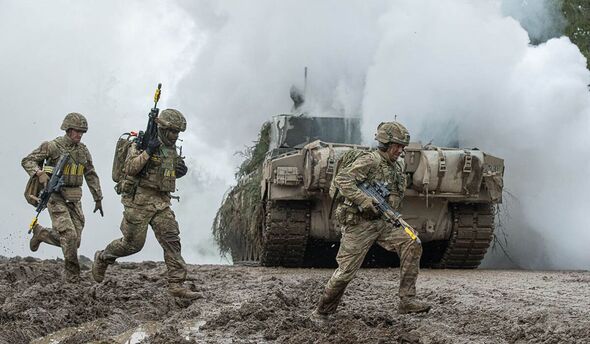NATO troops have carried out drills simulating a Russian invasion of Europe in preparation for a wider conflict.
Vladimir Putin’s soldiers have been in Ukraine for more than two years now after launching the full-scale invasion in February 2022.
The resulting hostility from the war in Eastern Europe has left other European countries concerned that they could be next.
The Baltic countries – Lithuania, Latvia, and Estonia – are especially worried given their Soviet past and consistent provocation from Moscow over the years.
NATO soldiers recently took part in a month-long drill called Exercise Swift Response, part of NATO’s biggest military exercise since the Cold War.
READ MORE: Ukraine desperately fighting as Zelensky calls convicts to the bloody frontline
More than 90,000 troops from all 32 Nato countries took part. Some of the exercises took place in Estonia’s countryside and simulated a Russian attack.
Speaking to the i, Brigadier Giles Harris said the exercises are “particularly relevant in the context of potential Russian invasion”, and “in any combat situation anywhere in the world.”
He added that the Baltic countries are, at a psychological level, “absolutely prepared.”
Brigadier Harris said: “It [occupation] is a threat they’ve lived with for a long time. And I think the scars of the period of occupation are still relatively fresh.”
Lieutenant-Colonel Dave Mans also told the outlet: “From Estonia, we do not need to look very far to see real battles being fought in trenches.
“We need to develop, maintain, and excel at operating in these conditions.
“The more we do at this scale and complexity, the better prepared we are for any environment. Training builds relationships, we learn how we react under pressure, and understand what our capabilities are to make the battlegroup as effective as possible, whatever it is asked to do.”
Earlier this month, a Ukrainian intelligence official warned that “the Russians will take the Baltics in seven days” if they attack there next.
Major-General Vadym Skibitsky told the Economist: “NATO’s reaction time is ten days.”
